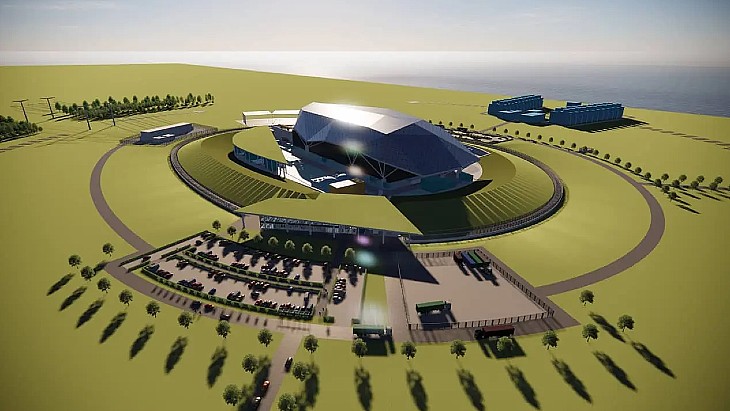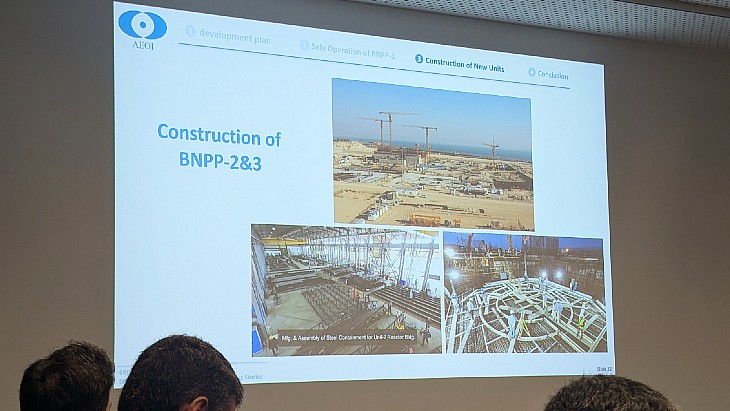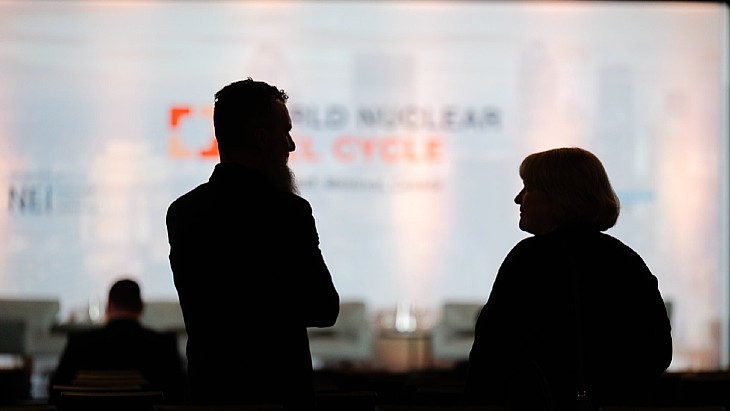Canada invites SMR vendors for demonstration unit
Canadian Nuclear Laboratories (CNL) has invited small modular reactor project proponents to evaluate the construction and operation of a demonstration SMR project at a site it manages. CNL aims to have a new SMR constructed on its Chalk River site by 2026.
CNL said the invitation represents the launch of its SMR review process, including the pre-qualification stage, which allows CNL to evaluate the "technical and business merits of proposed designs, assess the financial viability of the projects, and review the necessary national security and integrity requirements".
The invitation follows CNL's request for expressions of interest in SMRs, launched last June, which resulted in responses from 80 organisations around the world, including 19 expressions of interest in siting a prototype or demonstration reactor at a CNL-managed site. National nuclear science and technology organisation CNL last year set a goal of siting a new SMR on its Chalk River site by 2026.
"CNL is proud to extend this invitation to SMR project proponents from around the world, and to take one of the most important steps towards the successful deployment of a small modular reactor in Canada," said CNL President and CEO Mark Lesinski. "Based on early discussions with our stakeholders and the broader nuclear industry, we anticipate strong interest and enthusiasm for this announcement."
The invitation will remain open, CNL said, with rounds of intake periods expected to occur semi-annually. Applications received by 28 May will be assessed in the first round.
CNL said it has been working Atomic Energy of Canada Limited (AECL), owner of the CNL-managed sites, to "develop a process by which CNL could recommend the establishment of one or more SMR demonstration projects on one or more sites owned by AECL (including Chalk River Laboratories and Whiteshell Laboratories)".
Applications to the invitation will proceed through a four-stage process. Following the pre-qualification stage, which will assess proponents against preliminary criteria, applicants must complete a due diligence stage, which will require more stringent financial requirements and a full assessment of funding and project costs. The third stage, negotiation of land arrangement and other contracts, would lead to the signing of a site disposition agreement with AECL. In the final stage, project execution, the SMR unit would be licensed, constructed, tested and commissioned, operated and decommissioned.
Richard Sexton, President and CEO of AECL, said: "This invitation process was specifically designed by CNL to challenge SMR project proponents to address various issues in their planning, and to provide CNL and AECL with the necessary information to make informed decisions. The potential of SMRs is extremely exciting, but we have a responsibility to make sure that projects are technically feasible, bring value for money for Canada and Canadians, and most importantly, are safe for the environment, workers and the public."
The Canadian Nuclear Safety Commission is currently involved in pre-licensing vendor design reviews - an optional service to assess of a nuclear power plant design based on a vendor's reactor technology - for ten small reactors with capacities in the range of 3-300 MWe.
In February, Canada launched a process to prepare a roadmap to explore the potential of on- and off-grid applications for SMR technology. The roadmap - part of Natural Resources Canada's Energy Innovation Program - is aimed at helping position Canada to become a global leader in the emerging SMR market. Driven by interested provincial and territorial governments and energy utilities, the exercise will be delivered by the Canadian Nuclear Association. It will engage stakeholders to better understand their views on priorities and challenges related to the possible development and deployment of SMRs in Canada. The roadmap is expected to be completed later this year.
Researched and written
by World Nuclear News
_92619.jpg)

_84504.jpg)







_50521.jpg)

